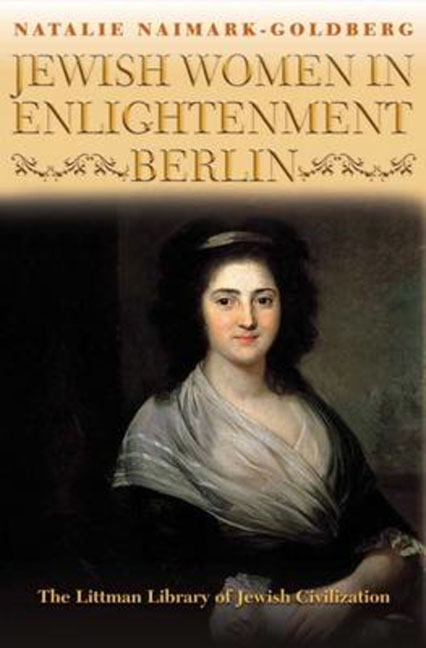Book contents
- Frontmatter
- Dedication
- Acknowledgements
- Contents
- List of Illustrations
- Note on the Translation of Sources and the Use of Names
- Note on Transliteration
- Introduction
- 1 Private Letters: An Alternative Sphere for Cultural Discourse
- 2 Jewish Women and the Reading Public
- 3 Going Public: Jewish Women in the Field of Literature and Publishing
- 4 Sociability and Acculturation in German Spas
- 5 Social Gatherings in Private Homes
- 6 Female Emancipation
- 7 Between Acculturation and Conversion
- 8 Conclusion
- Bibliography
- Index
7 - Between Acculturation and Conversion
- Frontmatter
- Dedication
- Acknowledgements
- Contents
- List of Illustrations
- Note on the Translation of Sources and the Use of Names
- Note on Transliteration
- Introduction
- 1 Private Letters: An Alternative Sphere for Cultural Discourse
- 2 Jewish Women and the Reading Public
- 3 Going Public: Jewish Women in the Field of Literature and Publishing
- 4 Sociability and Acculturation in German Spas
- 5 Social Gatherings in Private Homes
- 6 Female Emancipation
- 7 Between Acculturation and Conversion
- 8 Conclusion
- Bibliography
- Index
Summary
DRESSED IN AN ELEGANT COSTUME and accompanied by her friends Esther Gad and Friederike Unzelmann, Fradchen Liebmann arrived at the Berlin opera house one evening in mid-February 1801 to attend a carnivalesque festivity which was taking place there. It was not the first time that Liebmann had attended a Redoute, the city's by then traditional masquerade ball. The previous year she had attended this exclusive celebration accompanied by Rahel Levin—who was absent from the 1801 Redoute as she was away in Paris. With marked self-confidence Liebmann mingled with non-Jewish guests and established contact with some strangers, amazing new acquaintances with her knowledge of several languages, including Italian and English. Her experience at the ball, she noted later, gave her great pleasure.
Earlier that month, Liebmann had attended an event celebrated in a quite different social circle: the Judenball, a ball organized by members of the Jewish community. At that time Liebmann was leading an active social life and cultivating numerous acquaintanceships in mixed society, and her ties to Jewish circles were becoming looser. Indeed, her decision to attend the Jewish ball derived precisely from a wish to maintain her connections with the members of her family and her religion: she insisted on attending the Jewish celebration ‘just so as not to exclude myself, since this winter there were so many picnics and dancing parties in our family in which I never participated, and at this ball I delivered these commitments en masse’. Somewhat to her surprise, she enjoyed the Jewish ball, even though her report on this event lacks the enthusiasm and cheerfulness that characterized the description of her experiences at the non-Jewish celebration.
Beyond the conclusions that may be drawn from this short account about the lifestyle of well-to-do Berlin Jews, which clearly included recreational pastimes such as family outings and dances which would not be typically identified with a traditional lifestyle, it is interesting to note the ambivalent attitude of an acculturated woman such as Fradchen Liebmann towards Jewish society—even its modern wing, to which her relatives belonged.
- Type
- Chapter
- Information
- Jewish Women in Enlightenment Berlin , pp. 257 - 293Publisher: Liverpool University PressPrint publication year: 2013



